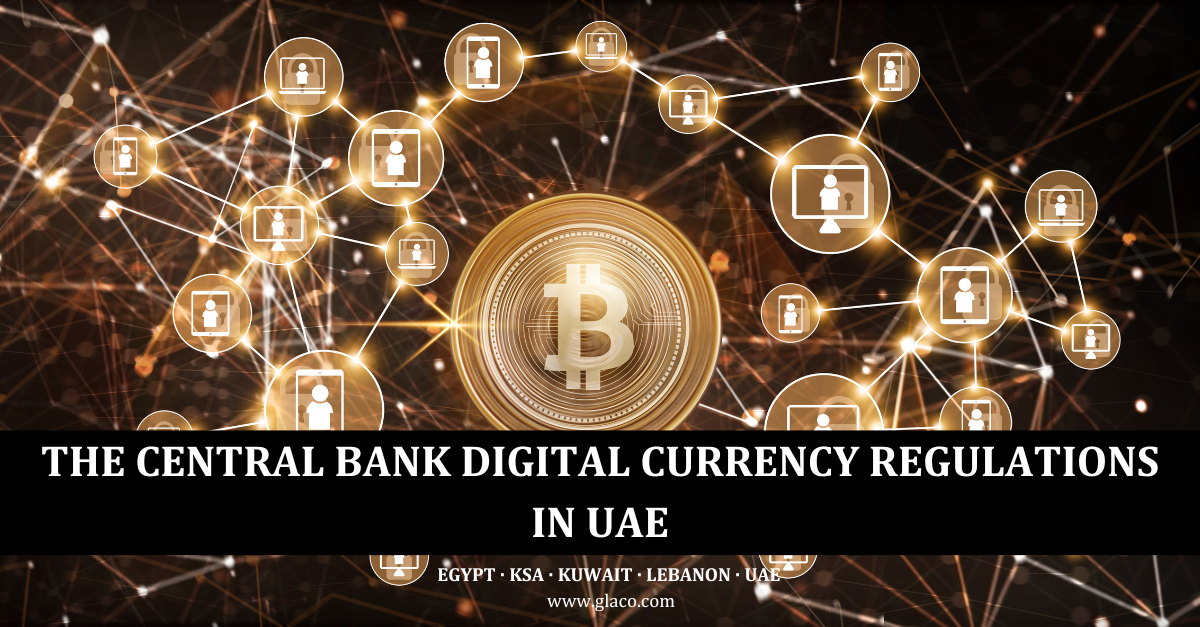
The Central Bank Digital Currency Regulations in UAE
The United Arab Emirates (“UAE”) has recently taken a bold step towards the digitalization of its monetary system by amending its Central Bank Law No. (14) of 2018 to include the Central Bank Digital Currency (“CBDC“) as an official currency in the country. The CBDC is a form of digital currency that is issued and regulated by the Central Bank of the UAE (“CBUAE“) as the sole authority for the national currency, whether in paper, metal or digital form.
The CBDC is designed to offer a secure, efficient and cost-effective alternative for payment transactions and value storage, in line with the UAE’s vision to become a leading hub for innovation and technology in the region and the world.
The new amendment, which was published in the Official Gazette on 2 October 2023, defines the currency as the UAE official national currency in the form of paper notes, metal coins and digital currency, and its unit as the Dirham. This means that the CBDC will have the same legal tender status as paper banknotes and coins, and can be used for any amount up to its full face value. The CBUAE will also be able to open accounts and keep balances of digital currency for licensed financial institutions, monetary authorities, other central banks, foreign banks, international financial and monetary institutions, and other entities, subject to the rules and requirements issued by the Board of Directors.
The amendment also specifies the features and denominations of the CBDC, as well as the procedures for its introduction and withdrawal from circulation. The CBUAE will be responsible for issuing the forms, specifications and designs of the CBDC, as well as the requirements and conditions of possession and all other features decided by the Board of Directors. The Board of Directors will also issue a resolution to introduce the CBDC into trading and to withdraw it when its face value is paid, and such resolution will be published in the Official Gazette and announced to the public in appropriate media. However, the CBUAE will not be liable to refund the value of any CBDC that is missing, stolen or manipulated, nor will it accept any counterfeit currency or pay its consideration.
The amendment also clarifies the relationship between the CBDC and other forms of virtual assets and payment instruments. It states that virtual assets defined in applicable legislations in the UAE will not be deemed a currency subject to the amendment, but the regulations, by-laws and rules issued by the Board of Directors will be applicable to virtual assets and currencies if used as a method or instrument of payment or exchange. It also states that if there is any reference in any legislation applicable in the UAE to the UAE Dirham, currency, cash, monetary funds or fund or any similar terminology, this will include the CBDC subject to the amendment, unless context requires otherwise. The CBUAE may also issue a list of interpretation for all technical terminologies stated in the amendment and publish it on its official website.
The amendment represents a significant milestone in the modernization and digitalization of the UAE monetary system and the enhancement of the CBUAE’s role and functions. It also reflects the UAE’s commitment to embracing global technological advancements and digital transformations, and to addressing the challenges and opportunities of the digital economy. However, the implementation of the amendment may also pose some challenges and risks, such as ensuring the security, stability and efficiency of the CBDC system, protecting the rights and interests of the users and providers of CBDC services, and complying with the international standards and best practices in the field of CBDC regulation and supervision.
If you have any questions or concerns regarding the CBDC or the regulations related to virtual assets and currencies in the UAE, please feel free to contact us. Our team of experienced regional lawyers is ready to assist you with any legal matters and provide you with comprehensive and timely advice.
Authors: Yousef Alamly, Partner, and Habiba Wahdan, Associate.
For further information, please contact Alex Saleh (alex.saleh@glaco.com) and Yousef Al Amly (y.alamly@glaco.com).

